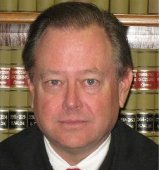12/19/2012
Tennessee: Appellate Court Upholds License Plate RoadblocksTennessee Appeals Court says accident statistics justify suspicionless roadblocks for license checks.

Stopping motorists who have done nothing wrong to ask for their papers is perfectly legal, the Tennessee Court of Appeals ruled last week. The three-judge panel decided simple statistics overcame the constitutional challenge mounted by Johnny E. Monk, whose stop at a roadblock led to a four-year prison sentence because his papers were not in order.
On August 28, 2009, Monk was headed home, while towing a disabled vehicle, as he passed through Sullivan County on State Road 44 in a 1990 Chevy pickup truck. When he came up to the intersection of Possum Creek and Old River Pike, however, he was stopped by a driver's license checkpoint that had been set up by the Tennessee Highway Patrol. Monk had no license or proof of insurance because his license had been suspended for a previous drunk driving offense. Trooper Robert Johnson admitted on the stand that Monk had not been driving erratically.
The Fourth Amendment to the Constitution prohibits warrantless searches of a person without individualized suspicion of wrongdoing, but the courts have authorized roadblocks under what California DUI Attorney Lawrence Taylor calls the "DUI exception to the Constitution."
"Seizures conducted pursuant to a police roadblock are sometimes excepted from the warrant requirement," Judge Robert W. Wedemeyer wrote for the court. "The United States Supreme Court has held that, under some circumstances, suspicionless temporary checkpoints to search for drunk drivers are reasonable and, thus, comply with the Fourth Amendment."
The Tennessee Supreme Court established a balancing test to determine whether a roadblock advanced a specific public interest that justified the infringement on individual liberty and privacy. The court determined the checkpoint here was justified because of the number of accidents caused by drivers with licensing problems.
"The state provided statistics indicating that 13.9 percent of all fatal crashes statewide in 2008 involved drivers with revoked licenses, suspended licenses, or no license," Judge Wedemeyer wrote. "Additional statistics revealed that 25.8 percent of the drivers involved in accidents between 2005 and 2009 in Sullivan County were charged with driver's license related charges."
At the checkpoint where Monk was stopped, troopers issued one ticket for a suspended license and three tickets for other minor paperwork violations. The court ruled the issuance of these tickets proved the state achieved its goal.
"The state has provided statistics in support of its contention that the roadblock is related to maintaining highway safety," Judge Wedemeyer wrote. "These statistics provide individualized suspicion and support the conclusion that unlicensed drivers are an imminent threat to the safety of motorists on the public roads in Tennessee and, specifically, in Sullivan County."
A copy of the decision is available in a 120k PDF file at the source link below.


